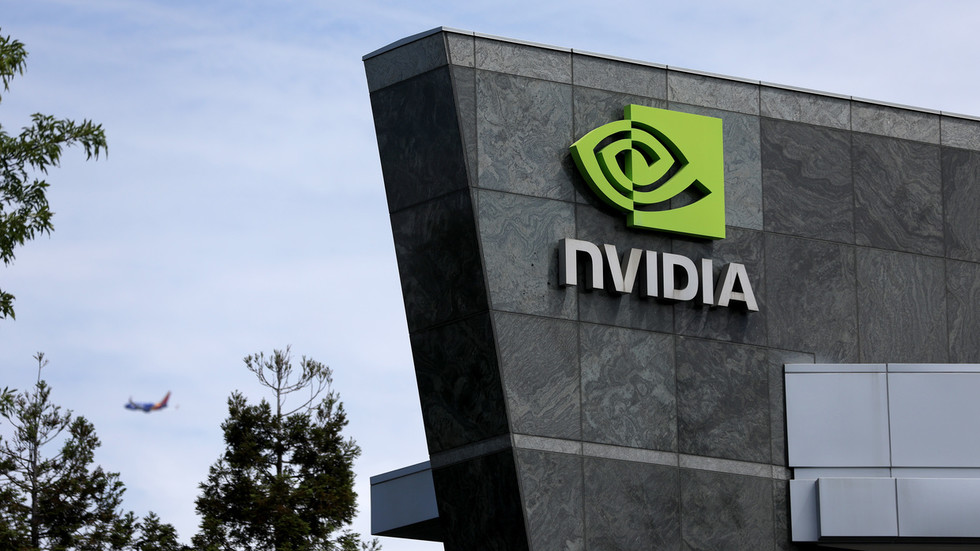Nvidia Exec Warns: Biden’s Chip Ban Could Have Unintended Consequences
In a striking revelation, an executive from Nvidia recently voiced serious concerns regarding the Biden administration’s chip ban. This policy, aimed at restricting the export of advanced semiconductor technology to certain countries, particularly China, may have unforeseen repercussions that could hinder the competitiveness of the U.S. technology sector on the global stage. The implications of this decision could reshape the dynamics of the semiconductor industry and the tech landscape at large.
The Rationale Behind the Chip Ban
To understand the potential consequences of the chip ban, it’s essential to grasp the rationale behind it. The Biden administration’s decision to impose restrictions on the export of cutting-edge chips is primarily rooted in national security concerns. The government aims to prevent sensitive technology from falling into the hands of foreign adversaries, especially in sectors that could bolster military capabilities or enhance surveillance capabilities.
However, while the intent is to safeguard U.S. interests, the Nvidia executive warns that such measures may inadvertently backfire. By limiting access to advanced technologies, the U.S. risks isolating itself from the rapidly evolving global technology landscape.
Concerns Over Global Competitiveness
As the semiconductor industry is a cornerstone of technological innovation, restricting chip exports can have dire consequences for American companies. The Nvidia executive emphasizes that the chip ban could stifle innovation within the U.S. tech sector. Here’s why:
- Reduced Market Access: By preventing exports to certain markets, U.S. companies may miss out on lucrative contracts and partnerships that are crucial for growth.
- Innovation Stagnation: Collaboration with international firms often leads to breakthroughs. Limiting these partnerships could slow down the pace of innovation.
- Supply Chain Disruptions: The semiconductor supply chain is global. Restricting trade could lead to bottlenecks and inefficiencies.
As a result, the executive argues, the U.S. could find itself at a technological disadvantage, ceding ground to other nations that are more open to collaboration and trade.
The Counterproductive Nature of the Ban
One of the most significant concerns raised by the Nvidia executive is the counterproductive nature of the ban. While the intention is to protect U.S. interests, the reality may be that such restrictions foster resentment and lead to retaliation from affected countries. This could manifest in various ways, including:
- Trade Wars: Countries affected by the ban may impose their own restrictions on U.S. companies, leading to a tit-for-tat trade war that harms all parties involved.
- Increased Competition: Nations like China may accelerate their efforts to develop their semiconductor capabilities, reducing U.S. dominance in the global market.
- Loss of Talent: The ban could discourage top talent from coming to the U.S. for work, as opportunities diminish and competition from other countries intensifies.
In essence, the executive warns that the chip ban may lead to a scenario where the U.S. not only fails to achieve its intended outcomes but may also exacerbate the very issues it seeks to mitigate.
Potential Alternatives to the Chip Ban
Given the potential drawbacks of the current policy, some industry experts and analysts suggest exploring alternative strategies that could achieve national security goals without harming the domestic tech industry. Here are a few potential approaches:
- Enhanced Collaboration: Instead of outright bans, the government could work with companies to develop secure technologies while allowing for controlled exports.
- Investment in Domestic Production: Increasing investment in domestic semiconductor manufacturing could help reduce reliance on foreign suppliers without resorting to bans.
- Diplomatic Engagement: Engaging in diplomatic discussions with key countries could encourage cooperation on technology standards and practices, reducing the risk of technology transfer to adversaries.
By adopting a more nuanced approach, the U.S. could protect its interests while simultaneously fostering a competitive and innovative tech landscape.
The Global Context of Semiconductor Technology
The semiconductor industry is not only crucial for consumer electronics but also for various sectors, including automotive, healthcare, and defense. Countries around the world are investing heavily in their semiconductor capabilities, recognizing the strategic importance of this technology. For instance, both the European Union and China have announced significant funding initiatives to boost their domestic semiconductor industries.
This global race for semiconductor supremacy underscores the importance of maintaining a competitive edge. If U.S. companies are restricted from accessing important markets, it could lead to a decline in their global market share and influence.
The Path Forward: A Balanced Approach
As the debate around the Biden administration’s chip ban continues, it is crucial for policymakers to consider the broader implications of their decisions. The Nvidia executive’s warning serves as a reminder that while protecting national security is vital, it should not come at the cost of stifling innovation and competitiveness.
Moving forward, a balanced approach that safeguards U.S. interests while promoting collaboration and growth in the tech sector may be the most prudent course of action. This could involve:
- Policy Reviews: Regular assessments of the impact of the chip ban on the industry and necessary adjustments based on evolving circumstances.
- Stakeholder Engagement: Involving industry leaders, academic experts, and policymakers in discussions to craft informed policies.
- Long-term Vision: Establishing a comprehensive strategy for the semiconductor industry that encompasses research, development, and international cooperation.
In conclusion, while the Biden administration’s chip ban is driven by legitimate concerns, the potential unintended consequences highlighted by the Nvidia executive warrant careful consideration. By adopting a more strategic and collaborative approach, the U.S. can work towards protecting its interests while ensuring its place as a leader in the global technology arena.
See more Future Tech Daily

